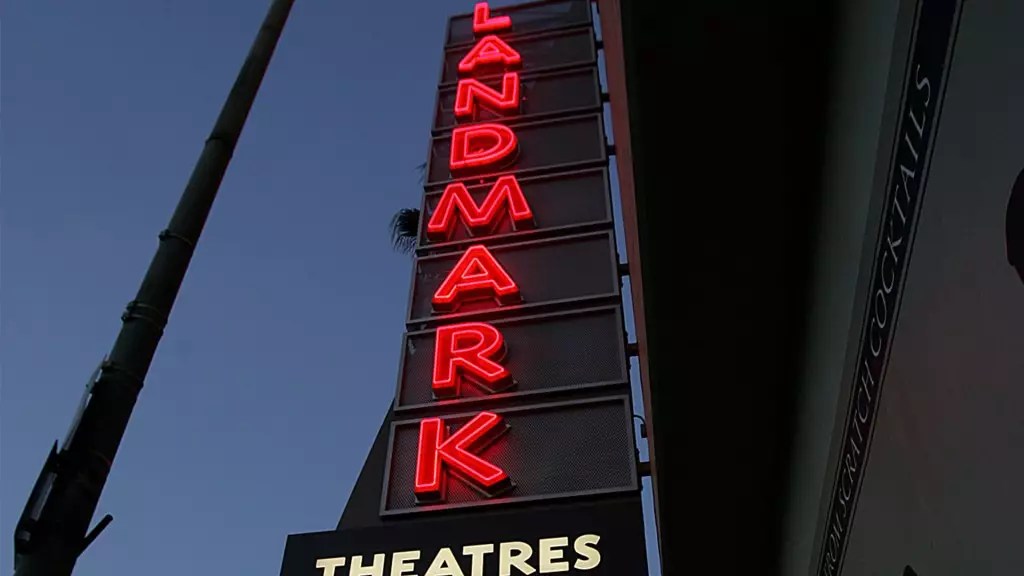The art of cinema has long captured the hearts of millions, yet today, several industry players, including Landmark Theatres, find themselves grappling with severe financial difficulties. This predicament arose not only from the pandemic but also from rising interest rates and labor strife in Hollywood. Recent legal proceedings have shed light on the depth of these challenges, revealing a narrative of loss, struggle, and a glimmer of hope for a positive resolution.
Landmark Theatres, known for its focus on independent and arthouse films, has suffered substantial declines in market value, with estimates reaching hundreds of millions of dollars. The COVID-19 pandemic forced theaters to close their doors temporarily, disrupting an already fragile market. In his deposition from May, Charles Cohen, the owner of Landmark, disclosed that the cinema industry, particularly arthouse theaters, continues to experience the repercussions. He cited a significant drop in attendance, with much of this decline attributed to ongoing public hesitance and shifting viewing habits towards streaming services.
In addition to the pandemic aftermath, the compounded effect of rising interest rates has further strained Landmark’s financial viability. High borrowing costs have made it increasingly difficult for theater chains to sustain their operations or invest in necessary upgrades. In Cohen’s testimony, it became evident that Landmark was grappling with a staggering net revenue loss of more than $14 million, portraying a bleak financial picture for a chain once standing as a beacon for film lovers.
The narrative surrounding Landmark Theatres is further complicated by strikes within the Hollywood ecosystem. A union strike involving writers and actors saw a halt in production for a staggering six months. As Cohen articulated during the deposition, these labor disputes played a crucial role in limiting new film releases, which are essential for driving cinema attendance. With fewer films available, audiences are less inclined to visit theaters. This unique combination of pandemic restrictions, financial pressures, and production stoppages has led to a perfect storm that has severely impacted Landmark’s bottom line.
The impact of these strikes reverberated through the entire industry, with numerous exhibition companies similarly affected. However, for theaters like Landmark that previously thrived on niche films, the effects have been particularly pronounced.
As Cohen’s revelations unfolded during the ongoing litigation with Fortress Credit Corp, the legal ramifications have compounded Landmark’s uncertainties. Fortress claims that Cohen defaulted on a loan, leading a judge to mandate an auction of various properties, including Landmark, to recoup owed amounts. Despite Cohen’s vocal belief in an impending settlement, time is of the essence, as the auction is earmarked for November 8.
Documents presented by Fortress exhibit alarming financial indicators, compelling the firm to secure a judicial order preventing Cohen from relocating any personal assets that could potentially escape their claim. Allegations have arisen of Cohen transferring over $70 million in assets soon after the loan default, including lavish properties and luxury yachts. Such actions have intensified Fortress’s legal stance, arguing that the magnitude of Cohen’s transfers constitutes an attempt to insulate wealth from creditors—a perspective that embellishes the narrative of financial misconduct.
Despite the grim circumstances, there remains a spark of optimism. Landmark has indicated its commitment to continuing operations amid the chaos. With the moviegoing landscape evolving, there are opportunities for chains to innovate and adapt to changing viewer preferences. This reality presents an essential conundrum: can Landmark pivot effectively to attract audiences willing to return to the theater?
Throughout the past few years, many exhibition companies have attempted to form hybrid models, blending arthouse films with wider releases—an approach that Landmark itself has begun to emulate. By adjusting to the latest trends while maintaining their signature focus on independent cinema, Landmark could carve out a niche in the revitalizing post-pandemic era.
While the challenges are immense, there is potential for recovery if Landmark can successfully navigate the complex landscape of modern film exhibition. The court proceedings, inevitable financial changes, and an uncertain market demand will ultimately dictate the future trajectory of this esteemed chain. As the clock ticks down to the auction date, stakeholders cautiously watch to see if a favorable outcome can emerge from this stifling predicament.


Leave a Reply